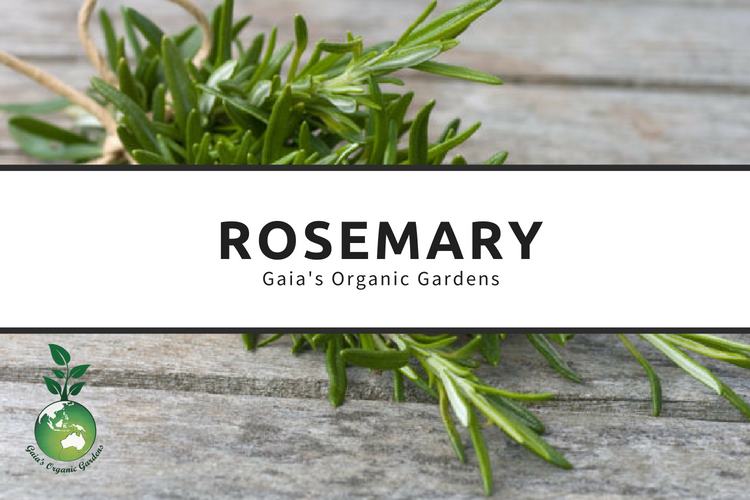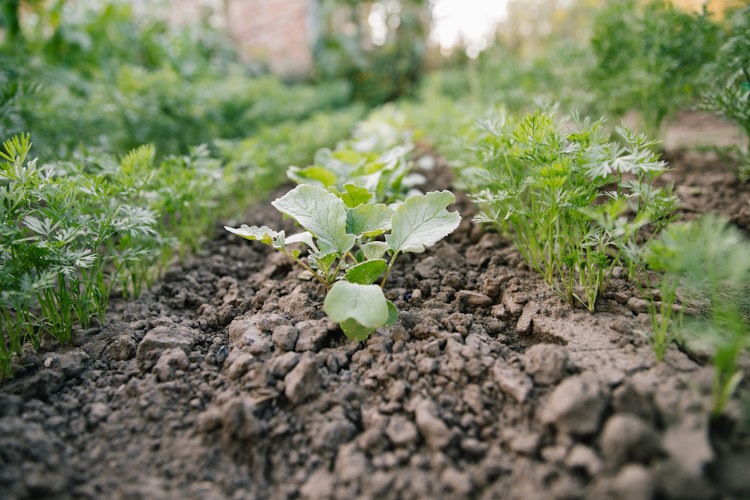Rosemary (Rosmarinus officinalis), a fragrant, perennial woody evergreen herb native to the Mediterranean region, is one of the most aromatic and pungent herbs around. It is one of the most commonly found herbs in a spice rack. With such an incredible fragrance and flavor, it’s easy to see why so many people cultivate rosemary in their homes and gardens.
This herb is considered to be sacred by ancient Romans, Greeks, Egyptians, as well as Hebrews and is particularly prevalent in Italian cultural cuisine. It is also called as ‘Dew of the Sea’ or ‘Old man’.
Here’s all you need to know about harvesting and using rosemary for culinary and medicinal purposes.
Nutritional Facts
One teaspoon of fresh rosemary has a reserve of vitamins such as 17.9 IU of vitamin A, 0.1mg of vitamin C, and 0.1mg of folate, as well as minerals like calcium (1.8mg), magnesium (0.5mg), phosphorus (0.4mg), potassium (3.8mg), and sodium (0.1mg). It also has 0.1g of carbohydrates, 0.1g of dietary fiber and has no cholesterol.
Moreover, a teaspoon of dried rosemary, has iron (3.4mcg), vitamin A (34.4 IU), vitamin C (0.7mg) and vitamin E (0.2mg). It also has calcium (14.1mg), iron (0.3mg), magnesium (2.4mg), phosphorus (0.8mg), potassium (10.5mg), selenium (0.1mcg), and sodium (0.5mg). It also has saturated fats (0.1g) and protein (0.1g).
Source: https://cronometer.com
Harvesting and Storage of Rosemary
You can harvest your rosemary plant at ANY TIME –in fact, pruning it daily or weekly will help the plant’s growth and health. Simply snip the top two or three inches off each sprig and use as you desire.
If you want to harvest more of rosemary, you can wait until the plant has begun to bloom, and then remove the top few off each sprig – just be careful not to cut it too close.
If you want to preserve your rosemary for future usage, you can bundle the clippings and hang them upside down to dry in a warm place. Once dry, just strip the stems and store the leaves in an air-tight container.
The Many Benefits of Rosemary
- Antioxidant
Studies have shown rosemary to be rich in antioxidants, which play an important role in neutralizing harmful particles called free radicals, boost the immune system, and improve blood circulation.
- Enhances memory and concentration
According to research outlined in Therapeutic Advances in Psychopharmacology, the aroma from rosemary can improve a person’s concentration, performance, speed, and accuracy and, to a lesser extent, their mood.
- Protects the brain
Scientific studies have found Rosemary to contain an ingredient called carnosic acid, which can fight off damage by free radicals in the brain. Rosemary seems to protect the brain against brain damage and might improve recovery from stroke. Also, rosemary may significantly help prevent brain aging based on some studies and its therapeutic ability to prevent Alzheimer’s shows promise, but more studies are needed.
- Anti-cancer benefits
A research published in Oncology Reports found that “crude ethanolic rosemary extract (RO)” slowed the spread of human leukemia and breast carcinoma cells.”
Another study, published in Bioscience, Biotechnology and Biochemistry, concluded that rosemary might be useful as an anti-inflammatory and anti-tumor agent.
Furthermore, a report published in the Journal of Food Science showed the addition of rosemary extract to ground beef reduces the formation of cancer-causing agents that can develop during cooking.
- Promotes eye health
Carnosic acid, which is a major component of rosemary, can significantly promote eye health according to a study published in the journal Investigative Ophthalmology & Visual Science, led by Dr. Stuart A. Lipton, Ph.D. and colleagues at Sanford-Burnham Medical Research Institute. This finding clearly has clinical importance for diseases such as age-related macular degeneration.
Other benefits of Rosemary: Can be used as a hair rinse for strong long hair, it reduces cellulite and smelling it can improve memory and retention of information – try sniffing some while studying for exams.






